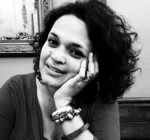An Action Researcher’s Checklist
– Divya Madhavan

- Not all research needs statistics.
- Not all research needs to be generalised to other populations.
- Not all research data needs numbers or sophisticated tools.
- All research needs a clear (and clearly articulated) agenda.
- All research demands responsible documenting of the data collection process.
- All researchers need to stay close to their reason for doing the research from start to end.
I’ve blogged regularly about research, about the uncomfortable way we hedge claims by saying ‘Research says…’, about research not being the intellectual property of academics and about how we might de-code research talks.
In this post, I’d like to zoom into the specifics of how we approach Action Research, with a series of questions. Hopefully I’ll frame the questions well enough to make your answer-seeking journey a little more lucid. To my mind, this is what research is all about: the act of seeking answers, and the road that ends up revealing itself as you do so.
This post isn’t a summary of centuries of scholarship – there’s a lot more to read on Action Research, so please don’t stop here if you are really interested in doing it.
Here’s the checklist:
1. Do you have four stages set out?
Action Research works on the principle of Plan-Act-Observe-Reflect (and then Plan-Act-Observe-Reflect again, and again – depending on how long you want to carry on). Aim for real clarity with your thinking, writing and reporting around this.
2. What is your research question?
Is there a specific purpose to doing this research? Has that purpose been clearly articulated? Action Research is not a research method where you go in not knowing why you’re going in. There are other methods for this kind of inquiry. Action Research is much more of the ‘crystal clear’ type where there’s a real purpose to the research, usually one that is directly related to the researcher’s practice (i.e. your classroom).
3. What’s the plan?
You don’t need a hypothesis. You need a plan. Some people associate Action Research with hypothesis-testing. Again, there are other methods for this kind of inquiry, where you start with a hypothesis. This doesn’t mean that you can’t ever have a hypothesis in Action Research, but it shouldn’t be where your thinking starts. Your thinking starts with an issue that you problematize, before planning how you’ll engage with the issue as an action researcher.
4. How are you going to document the ‘action’ and ‘observation’ phases of your research?
This is when you test drive your plan. Where I’ve slipped up very easily in the past is being so busy driving that I forget to write down little details about my observations, participant comments and even little mood shifts in the process along the way. Even though things seem ‘normal’ at the time, the more disciplined I am with the recording, the more I am able to analyse the process when I’m done.
5. Do you have specific reflection time at the end?
I think ‘reflection’ is rapidly becoming one of the most overused words in our industry. What I mean by ‘reflection time’ is that stage four is as important as the first three. Even though we think about things the whole way through, specific thinking-analysis time at the end is very precious and will help build a more robust second phase where there’s a further plan that is then put into action.
6. Do you feel comfortable with ‘going public’ with what you’ve done?
Even if you’ve made mistakes along the way, or left some things out in the process, do you explain why – and do you outline what you expect to do differently next time?
Don’t we already plan, act, observe and reflect in our everyday lives as teachers?
Of course we do.
What’s the difference?
I think the difference is the rigour that we impose on our thinking, documenting and analysis of what we see before us. With that comes the responsibility to examine our practice intelligently, rather than just responding to a situation emotionally, which often comes more easily to us all in a very normal, human way. And the difference is also in using the right vocabulary to say all of these things.
If you feel excited about Action Research, try and ask yourself :
What are the social changes or the individual changes you hope to deal with in your research?
How are you trying to reform your practice?
“Action research is concerned equally with changing individuals, on the one hand, and, on the other, the culture of the groups, institutions, and societies to which they belong. The culture of a group can be defined in terms of the characteristic substance and forms of the language and discourses, activities and practices, and social relationships and organisation which constitute the interactions of the group.” (Kemmis and McTaggart, 1992:16)
If I had to recommend one book it would be:
Carr, W. and Kemmis, S. (1986) Becoming Critical. Education, knowledge and action research, Lewes: Falmer Press.
Happy researching, reflecting and resonating…
Connect with Divya and other iTDi Associates, Mentors, and Faculty by joining iTDi Community. Sign Up For A Free iTDi Account to create your profile and get immediate access to our social forums and trial lessons from our English For Teachers and Teacher Development courses.





